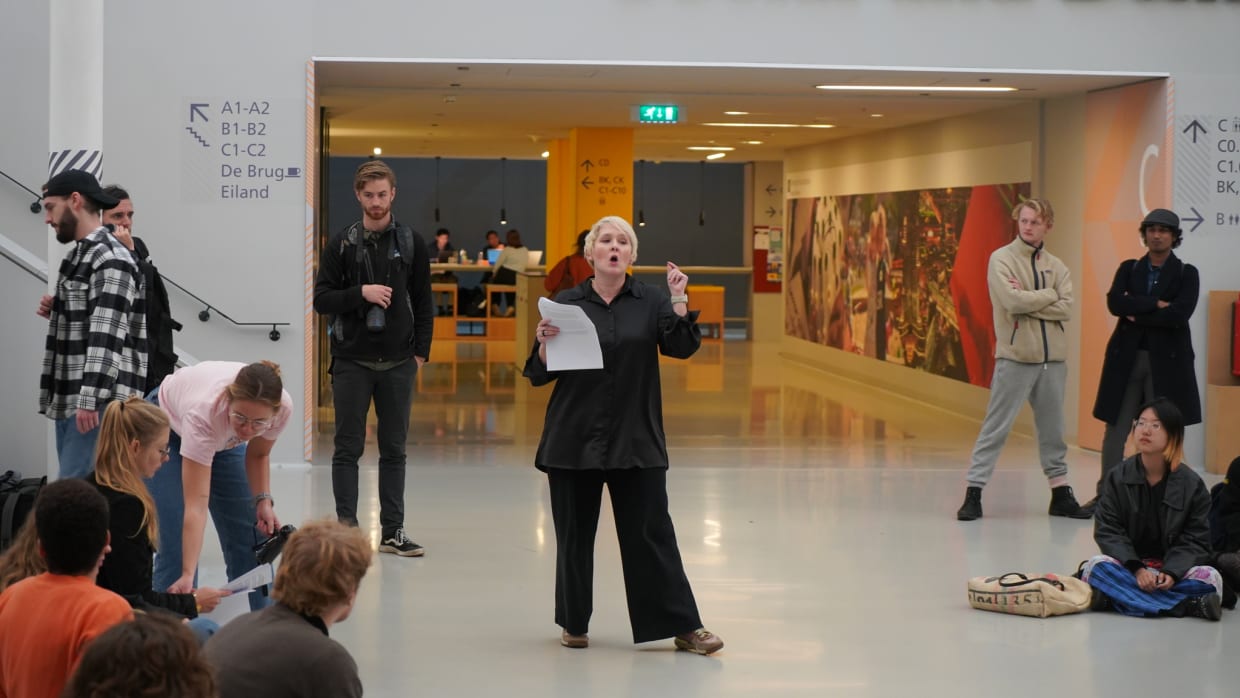
PVV celebrates cuts as victory over activism in higher education
The PVV wants tough cuts in higher education and research to combat political activism at universities and colleges, a debate on education showed yesterday.
“For too long, activist woke culture has been dominant in lecture halls and educational institutions,” said House of Representatives member Reinder Blaauw (PVV). “And too often political activism has taken precedence over academic integrity. Those days are thankfully over.”
In the debate, he denounced diversity officers because they do not help students learn to read soundly. “And how do curricula on critical race theory, decolonization, feminism, and global justice make our students better analytical thinkers?”
The “woke thinking,” for which he says frighteningly many students and faculty have fallen for, is said to have led to “Israeli students being attacked and threatened.
His solution: “There will have to be cuts in any case, mainly in higher education. They will amount to some €970 million.” The cuts are not meant to bully or punish students, he added. “This is the only way to give educational institutions the opportunity to rethink their priorities. Do our educational institutions want political activism on the menu or solid education and research?"
Double standard
Claire Martens-America (VVD) did not disagree. She denounced the “double standard” in higher education. “There are Jewish or Israeli students who dare not go to school, who have to wade through throngs of screaming protesters shouting that there is no place for them at university. And this is happening at institutions where the concept of social safety is taken all too casually.”
Doğukan Ergin (Denk) had more sympathy for the demonstrating students, given the devastation in Gaza. Universities there have been wiped off the map and thousands of students have died, he argued. As far as he is concerned, universities should therefore sever ties with Israeli institutions.
Long-study penalty
And the cuts? The opposition railed against them. The long-study penalty, for example, is a stupendously bad idea, stated a motion by the D66, Party for the Animals, SP, GroenLinks-PvdA, and Volt. In practice, it is a fine on informal caregivers, volunteer work, or board work, they argue.
That didn’t bother the new coalition. The PVV, as mentioned, was downright happy with the cuts. The NSC called some of the cuts “painful” and the BBB also spoke of “choices that definitely hurt.” But they defended them.
“The long-term study penalty is, of course, also a means to encourage children a little to complete their studies a bit faster,” said Claudia van Zanten (BBB). Or to finish one course of study and not keep starting another.
Check
The VVD opted more for an attack. With the many millions of euros of education spending, we do not know at all whether it has had an effect, argued MP Claire Martens-America. What are the concrete benchmarks for measuring equal opportunity? “I predict that many colleagues will continue complaining in the coming years about any intended cuts, while at the moment we have to check on amounts without quite knowing what to check for.”
What about the scrapping of the sector plans, whereby universities work together nationwide and that provide 1,200 permanent jobs? Ilana Rooderkerk (D66) asked her party colleague, outgoing minister Robbert Dijkgraaf, if these cuts can be reversed.
Peace and quiet
Dijkgraaf said little about it, except that agreements were indeed made that were supposed to provide “peace and quiet.” “Yes, it is then up to my successor to determine together with the university how this cut can ultimately be implemented,” he said.
The same is true of the long-study penalty, which requires a change in the law. Usually, that takes two years and then DUO must convert its systems. So the question is whether it will succeed as quickly as the new coalition hopes.
Dijkgraaf says: “I would like to add, in a personal capacity, that I attach great importance to accessible education for every student. I therefore hope that the next cabinet will take into account ambitious students who want to develop themselves alongside their studies by, for example, doing a year of administration. Or students who unfortunately fall ill while studying or who have a disability.” NSC leader Pieter Omtzigt said that there may indeed be exceptions.

